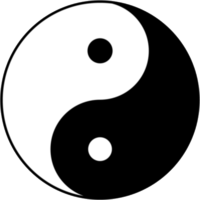When the Delphi MyFi XM2go handheld satellite radio came out last fall, it caused quite a stir. The new Tao XM2go is certainly more stylish than its predecessor, but we wish there were some performance enhancements as well. Instead, the Tao XM2go is exactly the same on the inside as the MyFi XM2go and the new Pioneer AirWare. Still, this is a very good portable satellite radio, and the ability to record up to 5 hours of content not only aids in the music discovery process but also ensures that you always have something to listen to, even when you can't get a consistent signal.
The Tao XM2go's main improvement over the MyFi is that it is housed in a black plastic shell with a nonslip coating on the sides, top, and bottom, as well as a black brushed-aluminum faceplate. It looks and feels more rugged than the other XM2go products, but its dimensions (4.5 by 2.8 by 1.2 inches) and weight (7.2 ounces) are roughly the same. The buttons stand out fairly far from the faceplate, and they are backlit so you can see what you're doing in the dark. The layout of the controls is very good for one-handed operation, though you'll also need to use the wheel on the right side, which doubles as a select button. Another difference from the MyFi is that the TAO's mute/pause button is in the center of the four-way rocker rather than below it, providing marginally easier access.
Other than the cosmetic differences, all other aspects of the device are the same as the MyFi and the AirWare. The user-replaceable rechargeable battery lasts just a touch more than 5 hours in live receiving mode. The device retains such handy features as TuneSelect, which lets you choose up to 20 artists or songs and alerts you when they're on the air. It also has a built-in FM transmitter so you can broadcast your satellite-radio signal to any FM stereo. And you can get personalized sports and stock tickers, as well as save up to 30 presets for quick access.
Unfortunately, the Tao suffers from the same set of minor inconveniences as other XM2go products. It has a tough time receiving signals indoors using the built-in antenna. Annoyingly, the device must be powered off during scheduled recording sessions or it will simply skip the session so as not to interrupt your listening. When you press the 2go button for recording, the device misses out on the first few seconds of the programming. It would also be nice if the device could grab songs from the beginning by means of something like a 30-second buffer, but that's still wishful thinking for now.
The Tao XM2go comes with a dizzying array of accessories, including home and car antennas, a remote control, a belt clip, cradles and stands for your home and car, a protective carrying case, and an audio cable.
Overall, we feel that in order to take off in a serious way, handheld satellite radios will have to get smaller and cheaper and offer more functions, such as MP3 support and a color screen. (It would be cool to see the album artwork for the songs you hear.) That said, these devices are gaining popularity despite their expense ($299 for the radio and $12.95 a month for the service) and bulk. The Tao XM2go is the most rugged-looking and ergonomic of the current crop of products, but they all have identical features and performance.
More satellite radio reviews:
Copyright © 2005 Ziff Davis Media Inc. All Rights Reserved. Originally appearing in PC Magazine.



